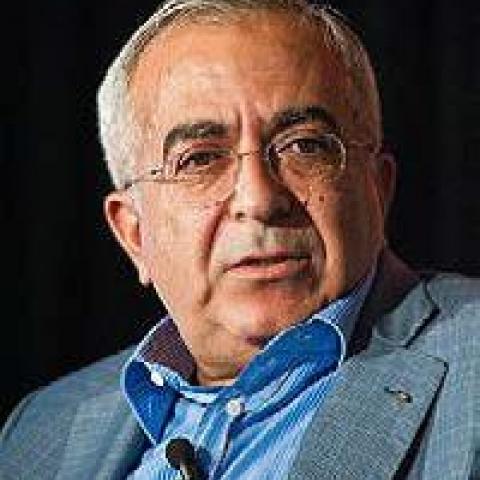

Princeton SPIA Faculty Offer Reactions to Israel-Hamas Ceasefire
Today, in reaction to the news of a ceasefire agreement between Israel and Hamas, faculty at the Princeton School of Public and International Affairs (Princeton SPIA) provided expert insights into the significance of this pivotal development.
Drawing on their deep expertise in conflict resolution, international relations, human rights, and Middle Eastern politics, Princeton SPIA scholars offer nuanced perspectives on the potential for sustained peace, the challenges ahead, and the broader geopolitical implications.
Their reactions underscore the School’s commitment to informing public understanding of critical global issues:

Since Trump first made his 'all hell' comment about the need for the Israeli hostages to be released by Inauguration Day, the stage was set for shifting the pressure to stop the war onto Netanyahu. That appears to have happened. The question is: What’s Netanyahu’s quid pro quo? More de facto, or even de jure, annexation in the West Bank is probably the most obvious of several possibilities that may also include Israeli interests in Lebanon, Syria, and possibly even Iran. Unfortunately, it may not be long before such a scenario plays out. In the meantime, especially for Palestinians in Gaza and the hostages and their families, the long-awaited deal could not have been struck, nor can it be implemented, soon enough.”

It is such a relief to see this (long overdue) cease-fire in place. The next few weeks will be critical in ensuring the effective delivery of humanitarian assistance, the release of hostages, the return of displaced Gazans to their towns, maintaining stability, and the creation of the appropriate governing structure in Gaza. Diplomacy continues to be and will always remain the most viable and promising path to the end of hostilities.”

Announcement of a ceasefire/hostage deal between Israel and Hamas will bring relief to the families of the hostages who are released; continued anxiety to the families of hostages still in captivity; breathing space to the tens of thousands of homeless Palestinians suffering food, water, and health deprivation; and diplomatic challenges for Israel, Hamas, the United States, and the international community. President Biden and President-elect Trump share credit for helping to reach the agreement, but the hardest work lies ahead – Gaza reconstruction and rehabilitation, return of dispossessed Israeli and Palestinian civilians to homes that may no longer exist, law and order and security, and – most important – immediate work on the next phase of this deal and renewed focus on resolving the underlying Israel-Palestine conflict. It is a very tall order for the incoming administration which, in effect, will be judged on the success or failure of the process.”

We should celebrate the likely ceasefire but deplore that it could have been concluded months ago, saving thousands of lives and avoiding enormous civilian suffering. There undoubtedly was some recalcitrance on both sides, but Israeli Prime Minister Benjamin Netanyahu repeatedly moved the goal posts, adding new conditions despite the enormous costs, just so he could retain power, avoid a political reckoning for the intelligence failures that enabled the October 7, 2023, attack, and evade prison on pending corruption charges. Now Netanyahu has used the excuse of Donald Trump’s 'all hell' threat to tell his coalition partners that he was compelled to agree to an accord that he should have adopted ages ago.”

October 7, 2023 marked a dark day in history, and the following 466 days saw continued devastation and violence. With a ceasefire and hostage deal finally in place, now is the time to rebuild — not just shattered infrastructure and communities, but the fractured principles of human rights and the rule of law. After more than a century of conflict, it's time to forge a future where peace and justice prevail for both Israelis and Palestinians, and where the rights to dignity, self-determination, and security are afforded to both Israelis and Palestinians.”

